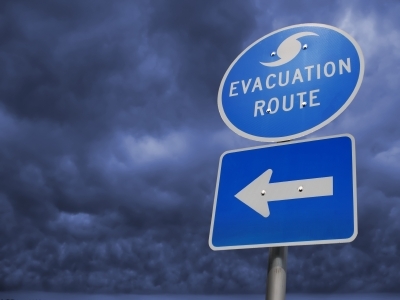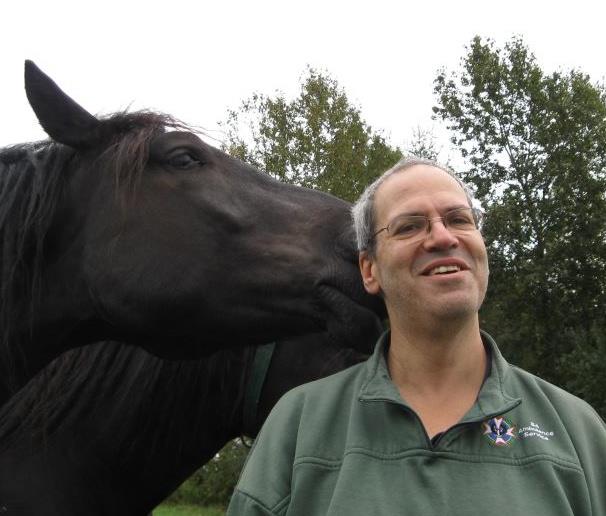A nugget of EMS organizational wisdom every day. #14 Failure shouldn’t be a terminal process.
We all make mistakes. Sometimes, as EMS leaders, the screw-ups are little ones that go unnoticed by anyone other than ourselves. And sometimes, they’re big, ugly – but not irreversible. You can correct the process. You need to quickly adapt and overcome lest failure becomes your organization’s ticket to the Hotel California [where you can check out anytime, but you can never leave].
I’ve been there. And this is the story of how my tactical error forever changed the way we provided services as an EMS organization.
I was the director of Cote Saint-Luc EMS in January of 1998. The City of Cote Saint-Luc was an interesting place to lead a team of emergency medical services providers. There was a very high percentage of the population who were 65 years of age and older and embedded within that considerable slice was a large community of Holocaust survivors.
On January 5 the freezing rain storm began to take a toll on the power grid. At 05h00 on the morning of January 6th, dispatch began to become inundated with calls for assistance. There were reports from Hydro-Quebec that some 700,000 households were without power in a large swath of southern Quebec.
On January 6 we realized evacuations were likely to become a necessity. At 11h35 we received the first of what would be many calls for medical verifications. A 75-year-old man was on a home oxygen system and plans were made for his eventual evacuation.
We were sliding further into crisis. Our calls were multiplying while available resources were shrinking. People were finding it difficult if not impossible to find a hotel room anywhere in Montreal.
From crisis we went directly into the abyss. No need to pass Go. We established shelters for the thousands of senior citizens and medically fragile residents we were evacuating from dark, frigid, carbon-monoxide-intensive apartment buildings.
I made mistakes. I made bubbies and zaidies* scream.
We had many senior-centric highrise or multi-building facilities that had to be evacuated. Given the sheer number of evacuations and the limited humans available to carry out the task, we drafted police officers to assist with these mass evacuations.
As police officers, many in tactical or bulked-up gear due to the extreme weather conditions, went door-to-door in the darkened hallways, hundreds of Holocaust survivors flashed back to a time of forced evacuations and transport to the death camps.
We had, of course, unintentionally made matters worse by providing the police officers with instructions to residents to gather their essentials into a bag as quickly as possible and then make their way to the lobby where they would be loaded into buses for the ride to the shelters.
At the shelters we had the standard line-up check-in procedure. The first round of evacuations resulted in dozens of cases of severe mental trauma and more than a few syncopal episodes.
When the plans failed, we adjusted. Failure shouldn’t be a terminal process.
We adjusted by having our medics accompany the police officers on their evacuation rounds, softened the approach, used as much light as could be hauled around, brought social workers into the mix on the buses and altered the check-in procedure to include large round tables where a social worker and a medic were assigned to each table to help residents acclimate to their new surroundings.
It became more like a last-minute social gathering. Thank goodness.
While our initial approach had failed, the revised-on-the-fly approach was exactly what was required. And the new tactic was the product of one of our volunteer medics, a young man named Jonathan Cooperman [who has since gone on to a career as an emergency physician]. He pitched it in mid-evacuation. We adjusted, evaluated, re-adjusted, re-evaluated and with a robust feedback loop in place implemented the new evacuation plan across our community.
And beyond having to evacuate in the midst of a natural disaster, no further trauma was inflicted on bubbies and zaidies. We had successfully converted a failed tactic into a solid new psycho-social strategy for dealing with special needs populations. It wasn’t easy and there certainly was pain and anguish involved but we didn’t allow our initial failure to dictate our way forward during the disaster. For me, that episode was one of the lasting lessons of the 1998 Ice Storm.
Be well. Practice big medicine.
Hal
*Bubby and Zaidie are the yiddush words for Grandmother and Grandfather respectively.




